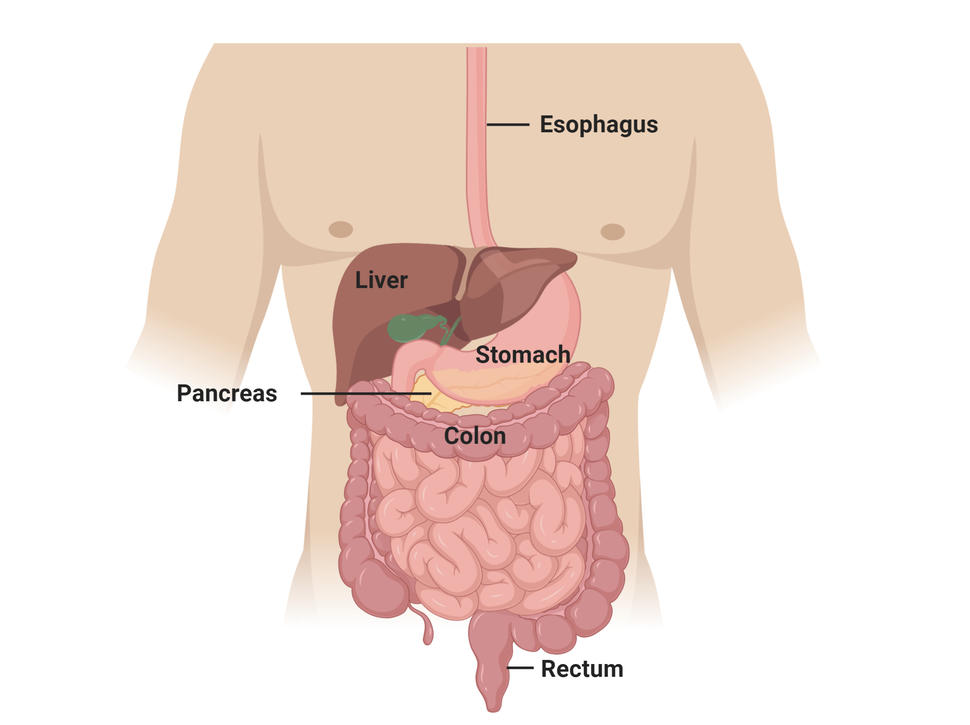Gastrointestinal Cancers Global Burden Expected to Rise
, by DCEG Staff
DCEG investigators and collaborators from the International Agency for Research on Cancer described trends in estimated rates of the five major types of gastrointestinal (GI) cancer, which include those of the stomach, liver, esophagus, pancreas, and colorectum. The findings were published April 2, 2020 in Gastroenterology.
Data drawn from three databases, GLOBOCAN, Cancer Incidence in Five Continents and the World Health Organization mortality database, revealed that the incidence and mortality trends of GI cancers varied by geographic location. In 2018, the majority of new cases (63%) and deaths (65%) occurred in Asia, followed by Europe and North America (26% of cases and 23% of deaths). Esophageal, gastric, and liver cancers were more prevalent in Asia, while colorectal and pancreatic cancers were more common in Europe and North America.
While age-adjusted gastric noncardia cancer incidence and mortality rates have been declining, incidence of esophageal adenocarcinoma, and cancers of the gastric cardia, colorectum, liver and pancreas have increased in adults under the age of 50 in the last 25 years. In addition, the researchers found that the burden of GI cancers has continued to shift towards economically- developing countries which typically have fewer health care resources to manage the increasing incidence. Given the trends in the data, the absolute number of new cases and deaths for each of the five major types of GI cancers are likely to increase.
These findings highlight the continued challenge GI cancers present to public health. Since these cancers share some potentially modifiable risk factors, such as tobacco smoking, infection, diet, physical inactivity, obesity, and alcohol consumption, implementation of primary prevention strategies focused on those factors will be critical to reducing the global burden.
Reference:
Arnold M et al, Global Burden of 5 Major Types of Gastrointestinal Cancer. Gastroenterology. April 2, 2020. DOI: 10.1053/j.gastro.2020.02.068. [Epub ahead of print]
